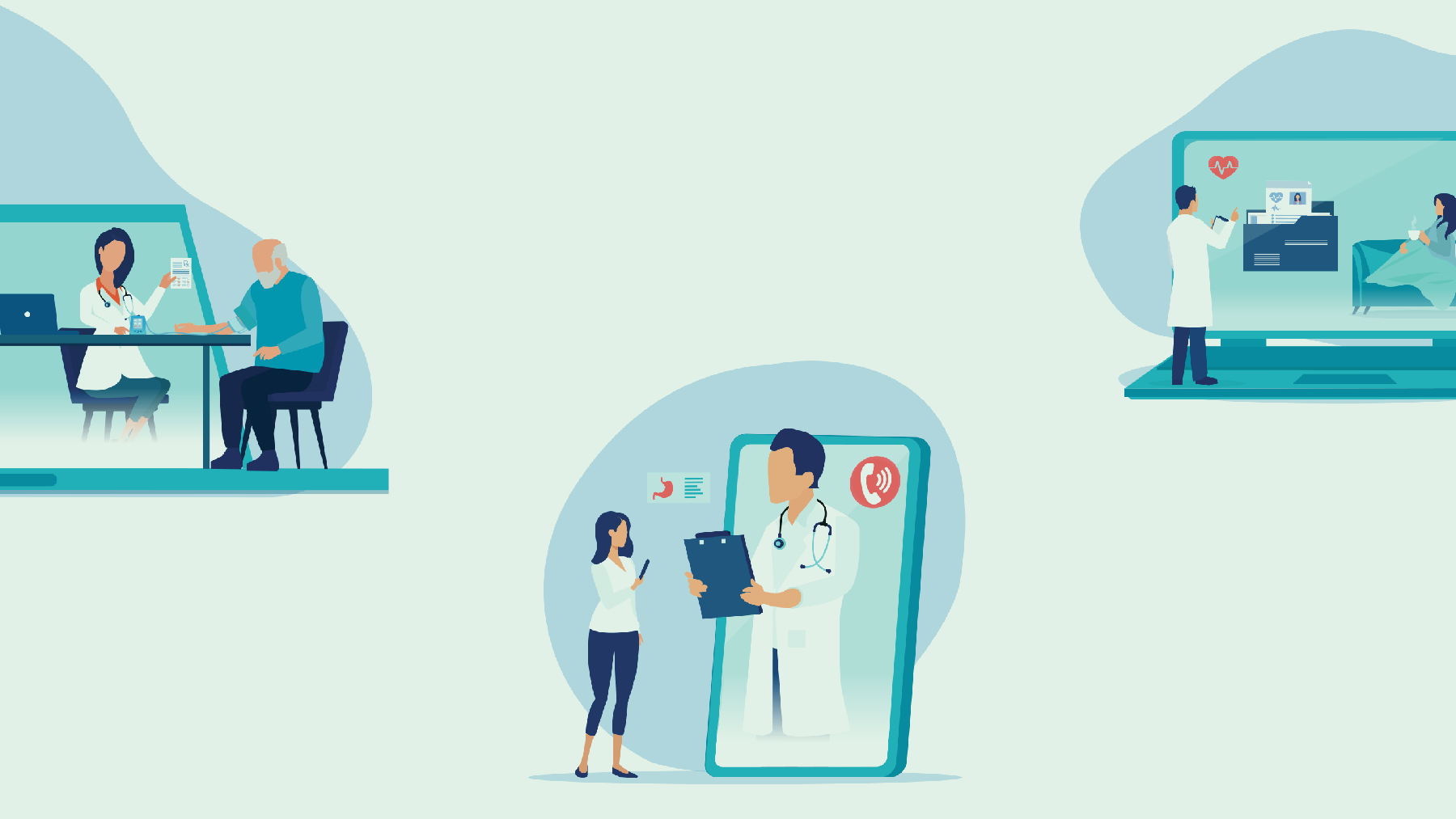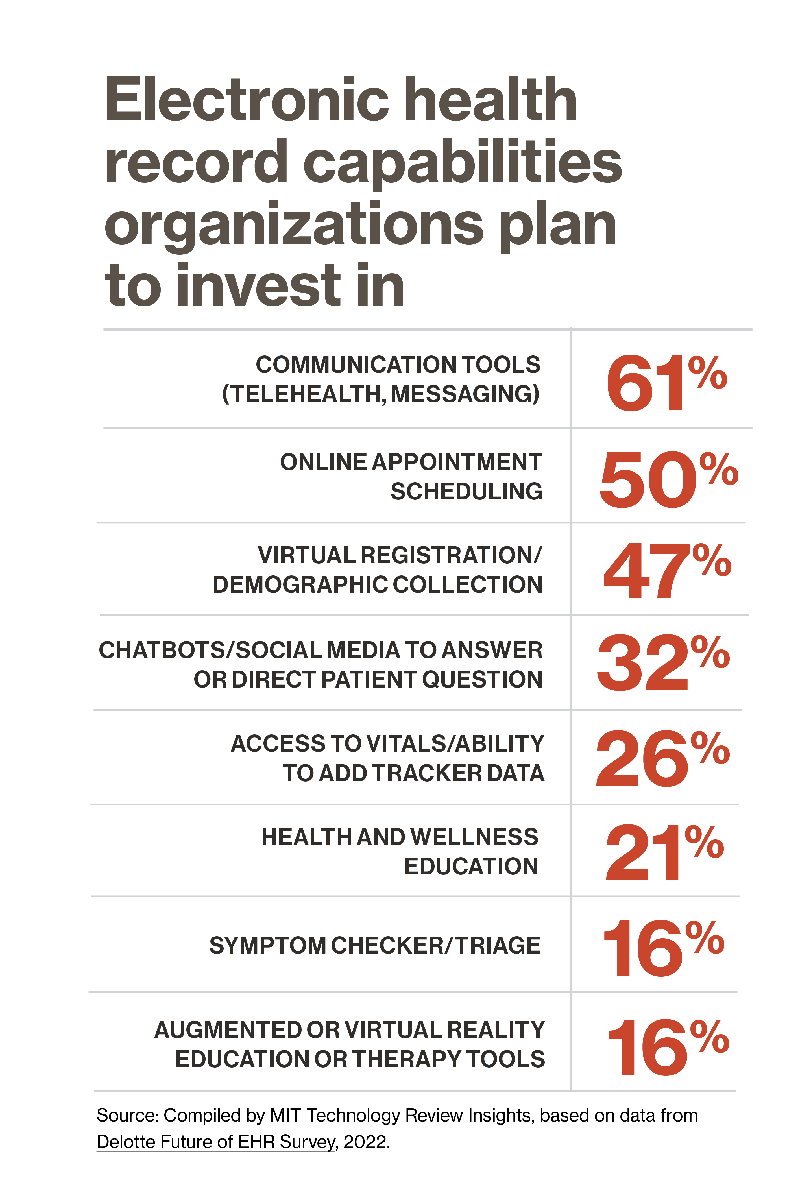Sponsored
A new operating system for health care
A reimagined IT infrastructure for health care could reorient us from sickness to wellness.
In association withOracle + Deloitte
Health data is all around us. Your electronic health records (EHRs) include your medical issues, test results, vital signs, allergies, prescriptions, and surgeries. Your health insurer’s database collects the claims paid on your behalf. Your pharmacy may record your flu and covid-19 shots. Maybe a smartwatch counts your steps and measures your heart rate; perhaps a genetic testing company has your DNA. Some people have pacemakers that transmit information to their cardiologist or implanted sensors that continuously track their blood sugar.

A new operating system for health care
What we don’t have is a way to make this data all work together—a “personal health ecosystem,” says Bharat Sutariya, MD, managing director in health care for Deloitte Consulting LLP and an emergency medicine specialist. The endocrinologist treating your diabetes doesn’t have ready access to your eye exam results, which could help them preserve your eyesight. Your phone might contain vital medical information that emergency room (ER) staff needs to properly take care of you, but it has to be able to connect with the hospital’s systems to transmit that data.
Dramatically better integration, however, is coming in the not-so-distant future, Sutariya says. And when it does, today’s health information management will seem as antiquated as sending a telegram. “The cloud infrastructure that’s becoming ubiquitous is going to unleash that potential,” Sutariya says. “If you choose to share your data, your doctor will know about your steps and your stress level from the apps you use, and smart pill packs will be able to record whether you’re taking your medication. If you have chest pain, paramedics will be able to access your records in the ambulance, and they’ll exchange pre-hospital intervention history with the receiving hospital. The ER doctor will have your treatment already staged because they’ve got your complete risk profile, and they’ll get you right to the cath lab.”

A new understanding of the power of connected health data may kick off this shift. In the U.S., for example, the historically decentralized nature of health care has been a blocker, but recent legislation mandating interoperable core EHR data and asserting patients’ ownership of their health data is changing this.
“These two provisions have started a movement that I believe is unstoppable,” says Sutariya. “It’s a game changer already, because the law says providers must share this data anywhere that the patient—who owns the data—tells them to share it.” After an extended period of rulemaking, those provisions went into effect late in 2022.
This content was produced by Insights, the custom content arm of MIT Technology Review. It was not written by MIT Technology Review’s editorial staff.
Deep Dive
Humans and technology
Building a more reliable supply chain
Rapidly advancing technologies are building the modern supply chain, making transparent, collaborative, and data-driven systems a reality.
Building a data-driven health-care ecosystem
Harnessing data to improve the equity, affordability, and quality of the health care system.
Let’s not make the same mistakes with AI that we made with social media
Social media’s unregulated evolution over the past decade holds a lot of lessons that apply directly to AI companies and technologies.
Stay connected
Get the latest updates from
MIT Technology Review
Discover special offers, top stories, upcoming events, and more.